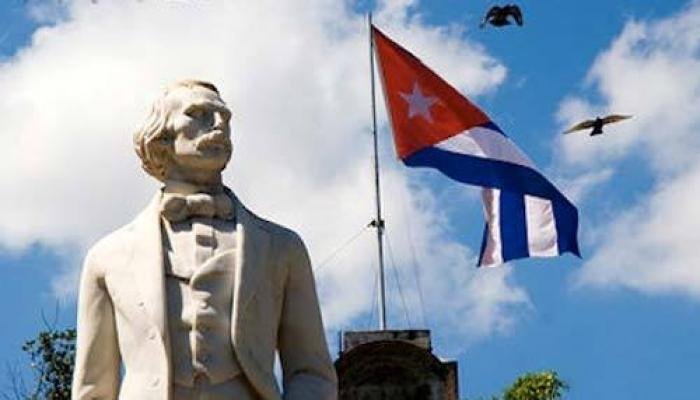
Havana, February 27 (RHC) -- Cuban President Miguel Díaz-Canel, through his account on X, highlighted the legacy of the Father of the Homeland and first President of the Republic in Arms, Carlos Manuel de Céspedes, on the 150th anniversary of his death.
He recalled Céspedes' words when he said: "Cubans: I count on your heroism to achieve independence. I count on your virtue to consolidate the Republic. Count on my abnegation".
For his part, the Prime Minister of the Republic, Manuel Marrero, recalled the words of the historic leader of the Cuban Revolution, Fidel Castro, when he said that Céspedes symbolized the spirit of the Cubans of that time, he symbolized the dignity and rebelliousness of a people -still heterogeneous- that was beginning to be born in history.
Likewise, the Caribbean nation's Foreign Minister, Bruno Rodriguez, highlighted the thinking of the hero when he warned very early on that the aspiration of the U.S. government was to take over Cuba.
Exactly 150 years ago, the man known here as the Father of the Homeland lost his life during an unequal combat against Spanish colonialist troops in the town of San Lorenzo, in the Sierra Maestra, in eastern Cuba.
A lawyer by profession and landowner, Céspedes freed his slaves in La Demajagua farm, in the eastern province of Granma, on October 10, 1868 and called them to independence or death to start the war of liberation against Spain.
With the rank of major general of the Liberation Army, he assumed the presidency of the Republic in Arms in April 1869.He outlined strategies to take the war to the whole country, starting with a crusade from east to west, with the objective of destroying the wealth of Spain to undermine its sources of sustenance and finally conquer national sovereignty.Tensions and disagreements with the House of Representatives led the latter to depose Céspedes on October 27, 1873.
According to historians of the island, the deposition was the prelude to his death because he was deprived of aides and escort, and at the same time, he was forced to leave the government.
Unjustly deprived of the escort that corresponded to his high position, he fell on February 27, 1874 in an ambush perpetrated by the San Quintín Hunters Battalion, from which he defended himself with only a revolver.

